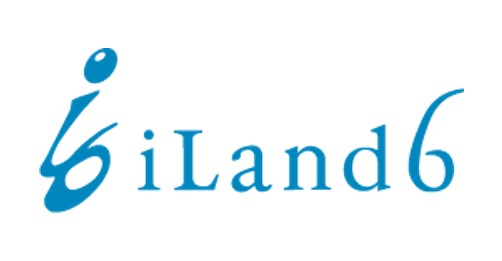ロボットとサラダの関係とは?そして、どちらがハイテク・ニュースレターにふさわしいか?
この5年間で、東京のスーパーマーケットやコンビニエンスストアでは、あらかじめ包装された新鮮なサラダの普及が進んでいます。これは、社会構造の転換点を意味しています。単身赴任と専業主婦の核家族から、共働きの家庭、30代までの独身者と独身者といった新しいパターンへの移行が進んでいます。安倍政権が目指していた女性の労働参加率の向上は、政府の政策によるものか、それにもかかわらず、実現しつつあると言えるでしょう。女性の管理職登用には長い道のりが待っているのは確かです。
家庭用ロボットは、ツタヤのレジャーアウトレットやソフトバンクショップなどのショールームに登場し始めています。ロボットも同じように時短という社会の流れの中にあるのですね。そうではありません。ソフトバンクの「Pepper」のような現世代のロボットは、どちらかというと高齢者や孤独な人のための「コンパニオン」として位置づけられています。会話をしたり(まあ、会話と呼べるようなものではありませんが…)、最終的には「主人」の世話をするセンサーや、アプリのストアを搭載する予定だそうです。1体19万8,000円のロボットだから、いいんじゃない?
というわけで、おわかりいただけたでしょうか。パッケージされたサラダが省力化装置。ロボットはコンパニオンです。次に来るのは、運転手がお辞儀と謝罪をしている間に、自分で運転するタクシーでしょうか?
規制緩和を謳い文句にTPP交渉が進む中、ある米国の交渉担当者が1980年代の日米構造協議での思い出を語っていたことを思い出すといいだろう。「循環型の交渉でした。例えば、私たちは自動車市場の規制緩和を求めました。すると彼らは、「市場の何パーセントが欲しいのか」と答えた。私たちは、「公平な競争条件であれば、0%でも構わない」と言った。すると彼らは「えっ、0%でもいいのか」と言いました。
香港のあるシンクタンクによると、日本は世界で最も規制の厳しい国の第3位だそうです(1位はインド、2位は中国が楽勝で獲得)。
私の会社であるiLand6が最近リリースしたクラウドデジタルサイネージシステムでは、ウィジェットの1つに天気予報が流れています。しかし、気象業務法第17条では、「公安上の理由」(!!)で気象情報を公開することを許可されていない団体に制限しているので、このようなストリーミングはダメなのかもしれません。
ここ数年、食料品店でバターが手に入らないことが多い。年間1万トンものバターが不足しているそうです。林野庁は酪農家の不足を理由にしていますが、本当の理由は輸入規制です。
TPPが解決してくれる?そうではない。日本はTPPで重要な食品カテゴリー(米、小麦、牛肉、豚肉、砂糖、牛乳…そしてバターは牛乳のカテゴリーに入る)を除外するよう主張している。
What’s the connection between robots and salad? And, which one belongs in a hi-tech newsletter? The past 5 years have seen a growing penetration of pre-packaged fresh salads in Tokyo’s supermarkets and convenience stores. This represents a tipping point in the social fabric. The transition is underway from the nuclear family with single wage-earner and stay-at-home mom to new patterns like the double-wage family, and lone bachelors and bachelorettes well into their thirties. The Abe government’s goal of higher women’s labor participation is starting to happen, though one can argue if it is due to government policies or in spite of them. There is certainly a long road ahead for women’s entry to management ranks. Home robots are starting to appear in showrooms such as Tsutaya leisure outlets, Softbank shops, etc. So, robots are part of the same social trend of time-saving, right? Well, not exactly. The current generation of robots like Softbank’s “Pepper” are positioned more as “companions”, for elderly and lonely people. They carry on conversations (well, not something I’d call a conversation, but…), and eventually will have sensors to look after their “masters”, and a store of apps. At 198,000 yen a robot, why not? So, you get the idea. The packaged salads are the labor-saving device. The robot is a companion. What will come next – a taxi that drives itself, while the driver bows and apologizes? As the TPP (Trans-Pacific Partnership) negotiations progress heralding deregulation, it is worth remembering one U.S. negotiator’s reminisce from the U.S.-Japan Structural Impediments Talks of the 1980’s. “It was a circular negotiation. For example, we asked them to deregulate the automotive market. They responded, “what percent of the market do you want”. We said, “even zero percent is ok, as long as it’s a level playing field”. They said “oh, zero percent is ok?”.
According to one Hong Kong think tank, Japan is the #3 most regulated country in the world (India easily captures #1, and China #2).
My company iLand6 recently released a cloud digital signage system, and one of its widgets streams weather forecasts. But, Article 17 of the Meteorological Service Act restricts unauthorized bodies from publishing weather information for “public security reasons” (!?!), so such streaming may be a no-no.
In the last few years, it’s often hard to find butter in grocery stores here. Turns out there is a 10,000 ton/year shortage. The Forestry and Fisheries Ministry tries to blame the lack of dairy farmers, but the real reason is import regulations.
TPP to the rescue? Not really. Japan is insisting that TPP exempt Critical Food categories – rice, wheat, beef, pork, sugar, milk… and butter falls in the milk category.




